January 25-29, 2025
San Diego Convention Center
San Diego, CA, USA


January 25-29, 2025
San Diego Convention Center
San Diego, CA, USA
Click on a photo below to learn more about our esteemed mentors to determine with whom you would like to meet.
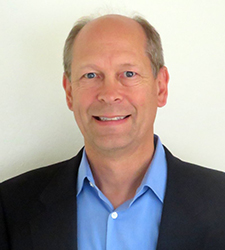
Evan Cromwell, Ph.D.
Protein Fluidics
Evan Cromwell, Ph.D., is a successful entrepreneur and innovative leader of instrument and assay product development teams. His passion is integrating new technologies into products that provide unexpected value to customers in life sciences and other communities. He has over 30 years of senior executive and technical experience in research, engineering, bioassay development, production and marketing.
Prior to founding Protein Fluidics, he served as the Director of Research at Molecular Devices and was a leader of a cross-OpCo scientific team for the Danaher Life Sciences group. He was the Founder and President of Blueshift Biotechnologies, a high-content screening and analysis venture that was acquired by Molecular Devices in 2008.
He holds a B.S. in Chemistry from Caltech and earned his Ph.D. in Physical Chemistry at the University of California, Berkeley. He has authored 50+ publications in the fields of biology, physical chemistry and optical instrumentation and holds 17 patents.
 Evan Cromwell, Ph.D.
Evan Cromwell, Ph.D.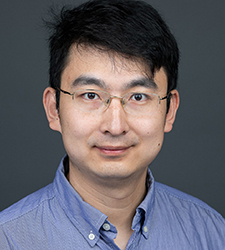
Chang Liu, Ph.D.
SCIEX
Chang Liu, Ph.D., currently leads the hardware research work on the MS sample preparation and sample introduction technologies at SCIEX (Ontario, Canada). His team invented the Acoustic Ejection Mass Spectrometry (AEMS) technology and developed its applications in high-throughput drug discovery.
Liu earned his B.Sc. in Chemistry from Peking University, China, and his Ph.D. in Analytical Chemistry from the University of British Columbia, Canada. He is the recipient of the 2021 Bioanalysis Outstanding Contribution Award (BOSCA), and 2022 Young Investigator Award from the Chinese American Society for Mass Spectrometry (CASMS).
Liu has published more than 50 research papers and held 20 issued patents. He is the editor of the book “High-Throughput Mass Spectrometry in Drug Discovery” (Wiley 2023).
 Chang Liu, Ph.D.
Chang Liu, Ph.D.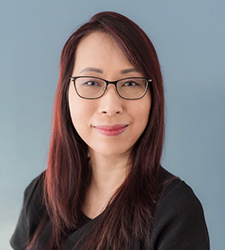
Tuyen Nguyen, M.S.
Alnylam Pharmaceuticals, Inc.
Tuyen Nguyen, M.S., is an accomplished Associate Director at Alnylam Pharmaceuticals Inc., where she plays a pivotal role in the biopharmaceutical company’s mission to discover, develop and commercialize groundbreaking RNA interference (RNAi) therapeutics for genetically defined diseases. With a strong focus on target discovery and validation, Nguye oversees the in vitro high-throughput screening pipeline, ensuring that innovative solutions are efficiently developed to address pressing medical needs. Her expertise extends to building, optimizing, and validating high-throughput in vitro screening automation systems, making her a key asset in the advancement of cutting-edge therapeutic technologies.
Nguyen's academic foundation is solid, having earned a Bachelor of Science in Biology from Emmanuel College, followed by a Master of Science in Biotechnology from Harvard University. Driven by a passion for scientific innovation and a commitment to improving patient outcomes, she continues to contribute significantly to the field of biopharmaceuticals, making a lasting impact on the lives of those affected by genetic diseases.
 Tuyen Nguyen, M.S.
Tuyen Nguyen, M.S.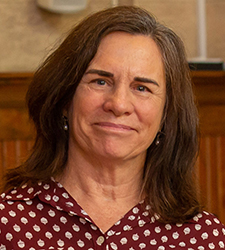
Anne Marie Quinn, MPH
Montana Molecular
Anne Marie Quinn, MPH is the founder and Chief Executive Officer of Montana Molecular LLC and a member of the Dr.GPCR advisory board. Her founding vision was to create a discovery platform to enable researchers to interrogate drug activity and cell signaling in living cells and animal models. This vision led to a comprehensive set of tools that enable researchers to directly measure clinically relevant biology with high spatial and temporal resolution in cell models that are relevant to disease. Under her leadership, the company launched a broad portfolio of proprietary products and services now used in laboratories across North America, Europe, Australia and Asia.
Quinn has been a principal investigator on eight SBIR grants from the National Institutes of Health and National Science Foundation, directed toward the development of novel genetically-encoded fluorescent technologies. These awards have resulted in a broad patent portfolio assigned to Montana Molecular.
Prior to starting Montana Molecular, Quinn was Senior Application Scientist with Accelrys (now Biovia). In this capacity she advised pharmaceutical and biotech companies across the U.S., Europe, Asia and the Middle East. Prior to working in the industry, she directed core facilities for bioinformatics and computational biology at Yale University and The Salk Institute for Biological Studies, and also taught bioinformatics at Yale and Cold Spring Harbor Laboratory. While at Salk, she collaborated with Tony Hunter and Steve Hanks to analyze protein kinase sequences, and she developed the first phylogenetic analysis of this important family of signaling proteins. She holds a Master in Public Health from Yale University. Her publication profile can be found on Google Scholar.
 Anne Marie Quinn, MPH
Anne Marie Quinn, MPH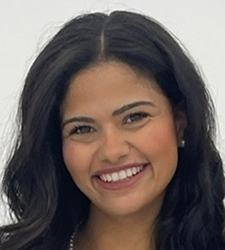
Angela Antoine, M.S., is a dedicated biomedical engineer with over four years of experience in the pharmaceutical industry, specializing in high-throughput screening technologies. Holding both a Bachelor’s and Master’s degree in Biomedical Engineering, she has successfully contributed to the development and optimization of innovative screening methods that accelerate drug discovery and improve therapeutic outcomes. Her expertise lies in automating complex workflows and enhancing data analysis processes, enabling more efficient research and development. Antoine is passionate about leveraging cutting-edge technology to drive advancements in biomedicine and is excited to share insights and collaborate with peers at this year's Society for Laboratory Automation and Screening conference.
 Angela Antoine, M.S.
Angela Antoine, M.S.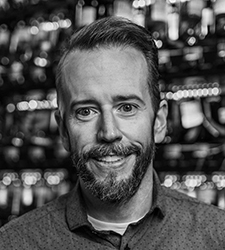
Colin Cox, Ph.D., is a lab automation engineer and molecular biologist who specializes in scaling, development and teams. He has extensive experience with liquid handlers and integrated workcells in both R&D and factory settings. Cox also teaches the 3D printing Short Course and is a certified rescue SCUBA diver. He is also passionate about diversity and inclusion programs.
 Colin Cox, Ph.D.
Colin Cox, Ph.D.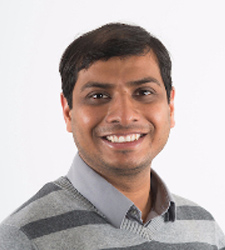
Kalpesh Gupta, Ph.D.
Moderna
Kalpesh Gupta, Ph.D., is an experienced biotech engineer with proven expertise in both wet lab and automation. Gupta has extensive experience in analytical assay development for biologics and downstream automated protein process development, along with experience in automating complex workflows for analytical/upstream and downstream processes and implementing integrated barcoding/LIMS workflows for seamless integration of automation systems to data analytics/LIMS systems. He is also an expert in programming, troubleshooting and modifying current systems within the Hamilton liquid handler.
Gupta leads high-performing teams spanning scientific and engineering disciplines such as laboratory automation, process engineering, technical operations and high-throughput delivery and boasts more than 14 years of experience working in the biotechnology industry ranging from large organizations to small startups. He is passionate about leadership, organizational management frameworks and coaching the next generation of engineers and scientists to achieve their dreams.
 Kalpesh Gupta, Ph.D.
Kalpesh Gupta, Ph.D.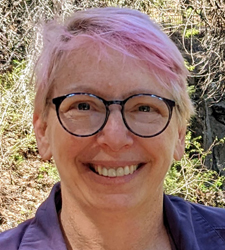
Shastine Keeney
Zevon Automation
Shastine Keeney has been working in automation for 25 years. She began in industrial automation working in the semi-conductor and fiber optic cable manufacturing spaces. In 2004, she stumbled into biotech and quickly landed at Genentech working with the automation of fermenters and purification systems in the pilot plants. However, because she missed working on equipment that had moving parts, she searched Genentech's internal job postings for the word "robot" which is how she discovered laboratory automation and has never looked back. These days she runs her own very successful one-woman consulting firm, working with clients small and large and in all facets of biopharma from synthetic biology and diagnostics, to early and late-stage drug discovery and beyond.
When she's not working, Shastine likes to dance as well as spend time with her two grandchildren and her several cats. Keeney loves mentoring because she loves to help people understand their worth and get perspective on career growth by focusing on what they've already accomplished and how they can feel empowered to move their career in new directions. She is especially attuned to ways that both explicit and implicit bias can impact folks in the workplace and feels that it is an important part of the discussion about career growth.
 Shastine Keeney
Shastine Keeney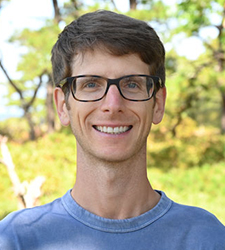
Ross Lagoy
WPI
Ross Lagoy has a diverse background spanning academia and early-stage companies in biotechnology and biomedical engineering. He began his career in academia, focusing on engineering new robotic and microfluidic screening systems and methods, and developing genetic models of human neurological disease.
Since then, he has led new project initiatives, worked on cutting-edge drug discovery programs, designed and built state-of-the-art instruments and fully automated platforms, and developed low-cost medical devices. Lagoy also contributed to the development of one of the first CRISPR/Cas9 medicines and participated in the launch of a cost-effective next-generation sequencing instrument.
Currently, Lagoy is an Adjunct Teaching Professor at WPI, where he teaches Advanced Laboratory Automation and Screening and consults for startup companies and top academic institutions in early technology development, scientific discovery, and project management.
He enjoys sharing his experiences as a mentor, consultant, and industry expert, as well as traveling and a variety of outdoor activities.
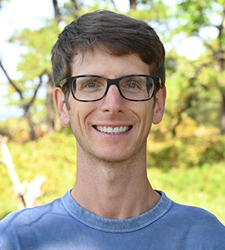 Ross Lagoy
Ross Lagoy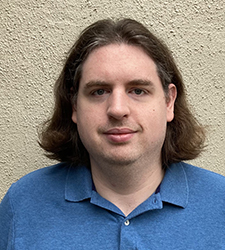
David Westover, Ph.D.
Merck
David Westover, Ph.D.,is a pharmaceutical development professional specializing in translational research, cellular and biochemical assay development, process analytics, and laboratory automation. He has extensive expertise with both small molecule and vaccine products. He has performed drug development roles in both academia and industry.
He holds a B.S. in Biomedical Sciences and a Ph.D. in Molecular Pharmacology and Cancer Therapeutics. He completed his post-doctoral fellowship at Vanderbilt University Medical Center in the laboratory of Christine M. Lovly, M.D., Ph.D. There, he discovered and published novel mechanisms of resistance to osimertinib, an FDA-approved tyrosine kinase inhibitor and first-line therapy in lung cancer patients with an EGFR-activating mutation. He was hired to a permanent position with the Vanderbilt High-Throughput Screening Facility to develop and automate large-scale biological assays supporting drug discovery, medicinal chemistry, and drug repositioning efforts.
Westover is currently a Senior Scientist within Merck’s Analytical Research & Development team, where he enables mRNA vaccine bioprocess development by automating analytical workflows and data analysis. His team is responsible for (1) automating and implementing a variety of analytical methods, including immunologic, cell-based, and biochemical assays; and (2) partnering with bioprocess- and formulation-facing colleagues to optimize and scale vaccine bioprocess for clinical trials.
 David Westover, Ph.D.
David Westover, Ph.D.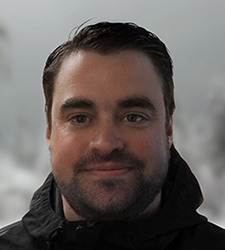
Scott Rehlander
StackWave
Scott Rehlander is an experienced software developer, automation engineer and product manager with over a decade of experience in the areas of laboratory informatics and robotic automation. His focus is on developing and managing comprehensive client solutions and building meaningful, long-term relationships with multi-faceted project teams. Rehlander’s background includes software engineering for scalable, distributed integrated systems, deployment and integration of large robotic systems, enterprise software integrations, and sales and marketing in the early-stage R&D biotech industry.
In addition to being a laboratory automation and informatics specialist, Rehlander is a proud father of young twins and in his spare time likes to learn new technologies, build web pages and develop mobile apps. He is also active member of the New England and Philadelphia chapters of the Laboratory Robotics Interest Group and spends as much time as he can facilitating the use of innovative technologies in his local community.
 Scott Rehlander
Scott Rehlander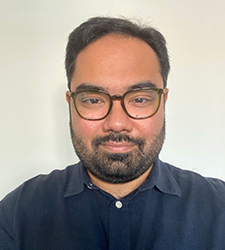
Mayukh Guha, Ph.D.
Metagenomi
With vast experience in cell biology, molecular biology, biochemistry and automation, I have developed high-throughputworkflows, optimized research processes, and served as the subject matter expert to bridge the gap between science and automation in my organizations. I have successfully implemented scaled up, repeatable and robust solutions to improve dataquality and reduce cycle time, resulting in a significant impact on productivity in mere months. My recent achievements include developing from scratch, high throughput (HTP) and automated pipelines for DNA assembly, barcoded library generation for protein engineering and next generation sequencing.
 Mayukh Guha, Ph.D.
Mayukh Guha, Ph.D.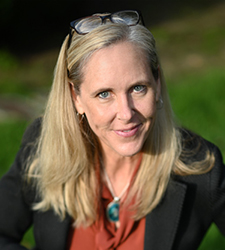
Cindy Lawley, Ph.D.
Olink Proteomics
Cindy Lawley, Ph.D., is passionate about innovation and making multiomic technologies easier and cheaper to measure in order to lower barriers for the implementation of scalable, reproducible discoveries that can be translated to the clinic to drive individualized medicine and health equity. In over 14 years at Illumina and together with customers, she helped develop solutions to better understand genetic risk in diverse populations and holds several Excellence in Technology Transfer awards for her work leading Illumina’s Consortia Program. She joined Olink in 2020 soon after the launch of the Explore Platform that leverages NGS as a high throughput proteomic readout. At Olink, she drives population health initiatives, working closely with the UK Biobank, FinnGen, SCALLOP and other large cohort studies.
 Cindy Lawley, Ph.D.
Cindy Lawley, Ph.D.